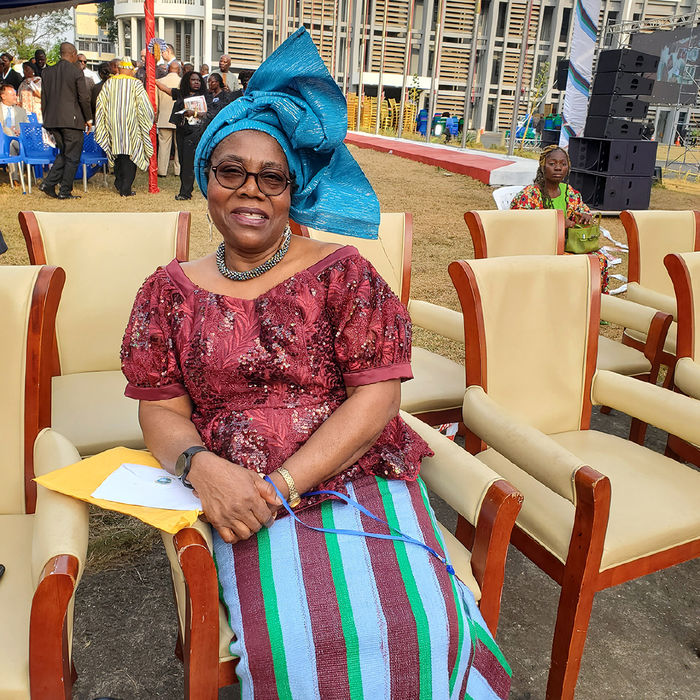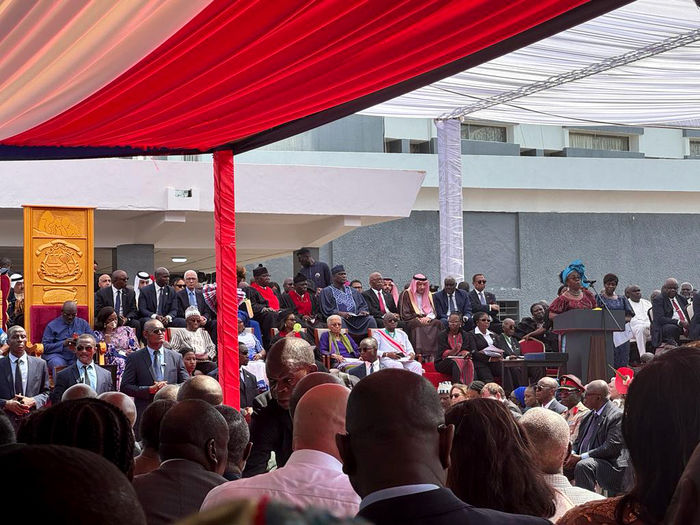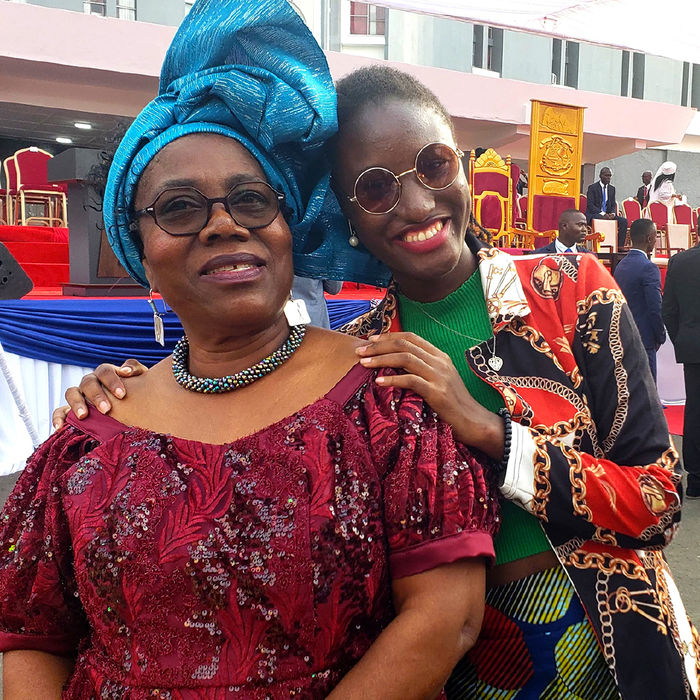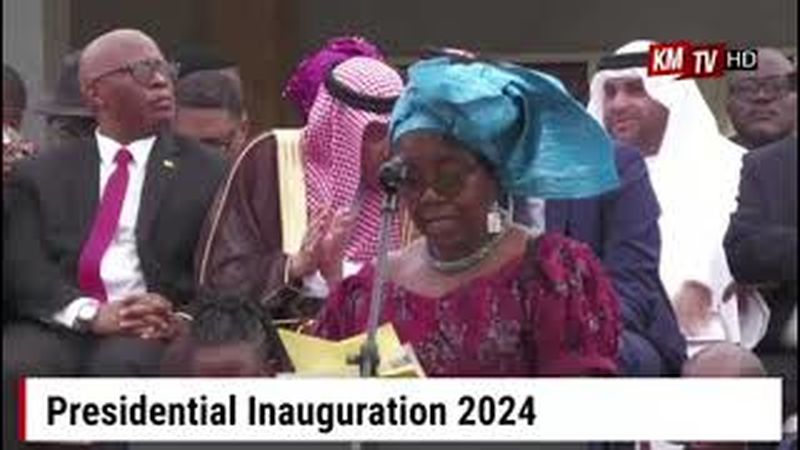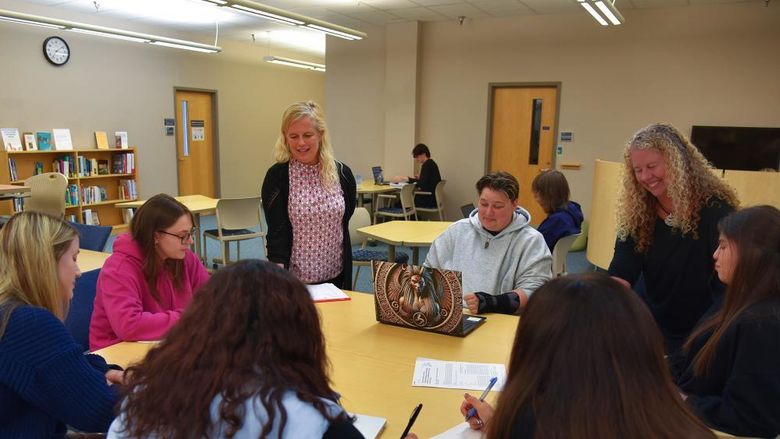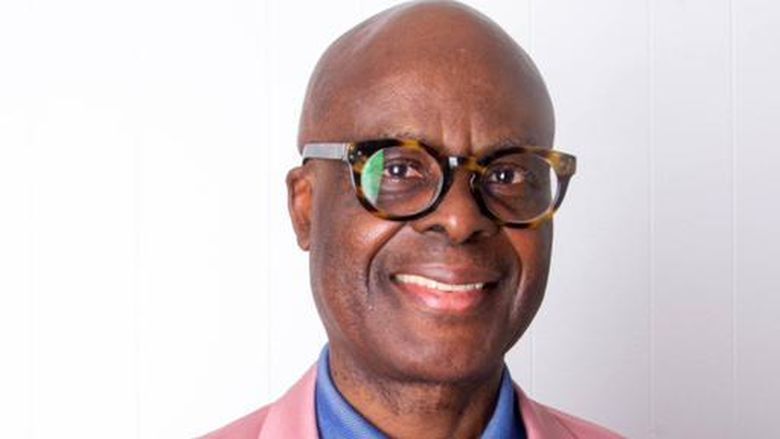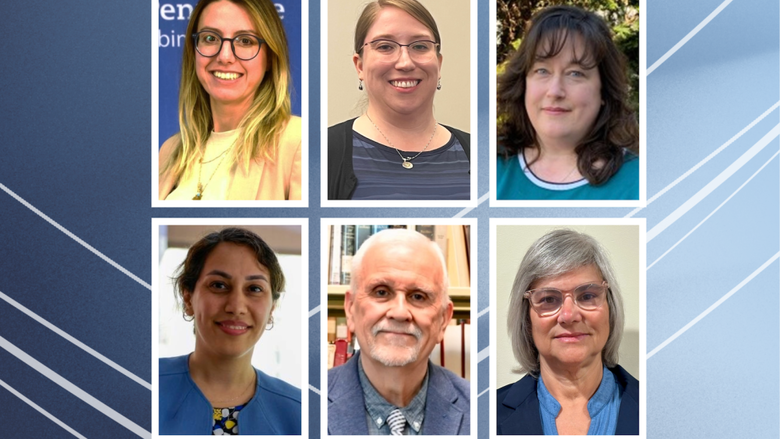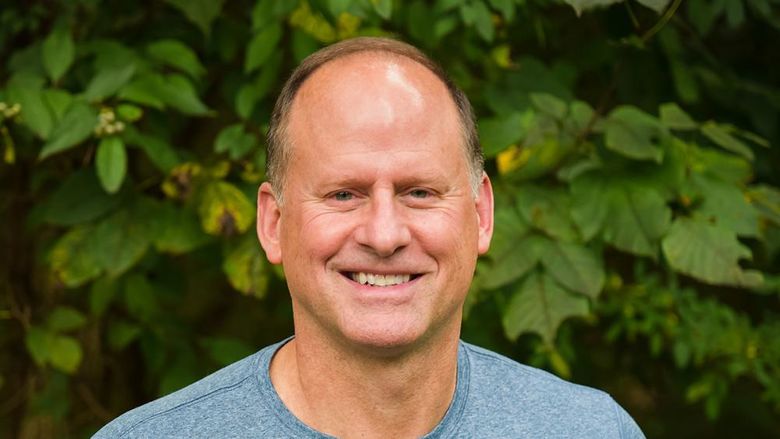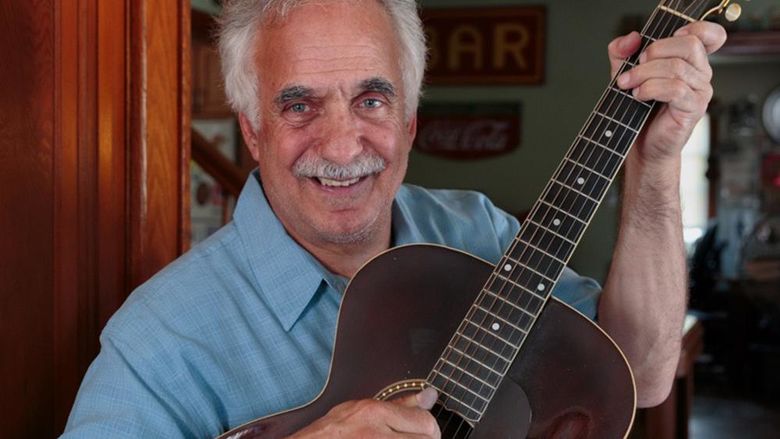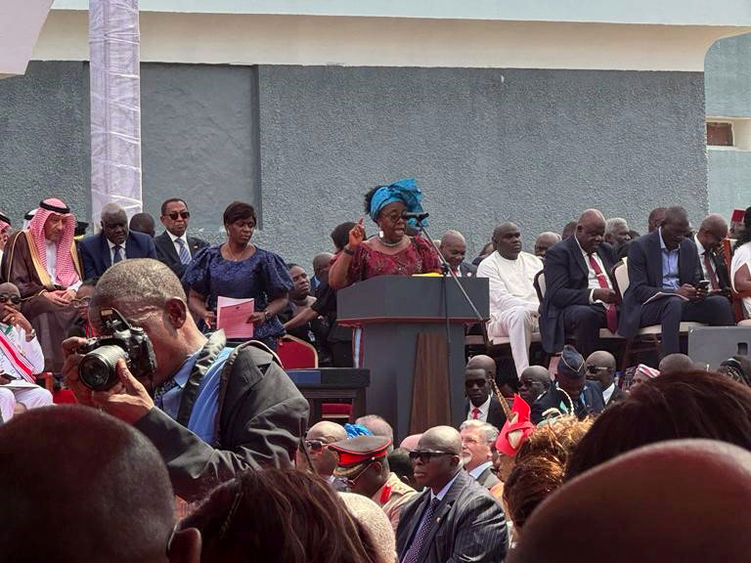
Patricia Jabbeh Wesley, professor of English at Penn State Altoona, was selected to write and read an original poem at the recent presidential inauguration in Liberia. The inauguration ceremony for Joseph N. Boakai took place on Jan. 22, at the Capitol Building in Monrovia. Many world leaders, including the United States representative to the United Nations, Linda Thomas-Greenfield, were in attendance.
ALTOONA, Pa. — Patricia Jabbeh Wesley, professor of English at Penn State Altoona, was selected to write and read an original poem at the recent presidential inauguration in Liberia. The inauguration ceremony for Joseph N. Boakai took place on Jan. 22 at the Capitol Building in Monrovia. Many world leaders, including the United States representative to the United Nations, Linda Thomas-Greenfield, were in attendance. There was an air of celebration, joy and hope throughout the event, Wesley said, with cultural performances and national songs sung by the local choir Little White Chapel.
“When I received the call from the chair of Liberia’s 2024 inauguration committee, I was shocked," Wesley said. "Since 1847, Liberia had never invited any poet or writer to perform at an inauguration. One hundred seventy-seven years of independence, but no writer has ever been given a chance to stand on that historic stage. It was an honor I could not refuse.”
Wesley read her poem “Liberia, Home of Our Mothers’ Mothers,” which she wrote specifically for the event.
“For me, my presence on that powerful stage means that there is hope for writers and artists, for Liberian poets who have for long been marginalized and left outside of history, and for our country," she said. "I hope my young writers may someday see a more art-inclusive government, and one day see a people who understand when a poet is reading to them on a historical stage.”
Wesley was born in her mother’s home village of Dolokeh in southeastern Liberia and grew up in Monrovia. She obtained her undergraduate degree from the University of Liberia in 1980 and a master’s in English education from Indiana University in 1985. She immigrated with her husband and three children in 1991 during the Liberian civil war, and in 2002 earned her doctorate in English and creative writing from Western Michigan University. She began her tenure at Penn State Altoona in 2005.
Wesley’s poetry has given voice to the voiceless through her exploration of themes on the Liberian and Grebo culture, the plight of the refugee of war, the new African Diaspora mother/wife, African femininity, motherhood, home, displacement and the war survivor as witness.
“Poets who write about Africa’s violent history and record the bloody wars are not the most popular in political circles,
Wesley said. "So, I was surprised but very proud that decades of my work had been recognized.”
In the letter commissioning Wesley for the inauguration poem, members of the inauguration steering committee acknowledged her immense scholarly contribution to the country through writing books and poetry about and for Liberia.
“When Patricia told me about this opportunity, I was completely stunned,” said Peter Hopsicker, vice chancellor for academic affairs. “What an amazing honor for one of our colleagues. The invitation and subsequent reading are certainly a testament to her international reputation and prestige among poets. Our college is certainly very lucky to count her as one of our own.”
Wesley is the author of six collections of poetry and one children’s book. Her newest publication, “Breaking the Silence: Anthology of Liberian Poetry,” is the most comprehensive volume of Liberian literature since Liberia’s independence. It was selected as one of Brittle Paper’s "100 Notable Books on African Literature of 2023". She has also published dozens of poems, stories and memoir articles in magazines such as New York Times Magazine, Harvard Review and Prairie Schooner.
She has won numerous awards, including the prestigious 2022 Theodore Roethke Memorial Poetry Prize for her book of poems, “Praise Song for My Children: New and Selected Poems,” a 2022 Levinson Prize from Poetry Magazine for her poems “Black Woman Selling Her Home in America,” and “Healing Will Come: Elegy After Natural Disaster,” a 2021 Edward Stanley Prize from Prairie Schooner Magazine for her poem, “My Name is Dawanyeno,” and a 2002 Crab Orchard Award and publication for her second book, “Becoming Ebony.”
Other recognitions include a 2020 Penn State Humanities Institute Fellowship and a 2011 Penn State Institute of Arts Fellowship, a 2016 WISE Women Literary Arts Award from Wise Women of Blair County, a 2011 President Barack Obama Award from Blair County NAACP, and the 2010 Liberian Award for her poetry and her mentorship of young Liberians in the Diaspora.
Reflecting on the experience, Wesley said she’s grateful for the chance to share her writing and love of her native country at such a special event.
“I’m thankful to the committee whose understanding of what it is I do as a poet allowed me this once in a lifetime opportunity. My parents were proud of me that day," she said.
Liberia, Home of Our Mothers' Mothers
By Patricia Jabbeh Wesley, professor of English at Penn State Altoona
Neh Nyue-anya, Ah Bati, oh, Neh Nyue-anya,
ah Bati, oh, Liberia, land of our fathers’ fathers,
the freedom seeker, where the wayfarer came home
to the mountains of Lofa, Nimba, trampling
the tropical forest through Bong, coming down
the hills of Grand Gedeh, our fathers planted feet,
some, to the coasts of Cape Mount, Cape Palmas,
Sinoe, Bassa, Dukor, traveling by day and by night.
From the mountains to the coast, our fathers came
centuries ago, and planted our umbilical cords
deep in the soil of this place, oh, my people,
this is our home, one people, one Liberia, all of us,
where our fathers died to give us this land.
Though we sing of you, we also wail for you.
In the hope of a day when we will truly know
that we are one of the same people, same blood,
same root, no matter where we came from.
Through the centuries we have sought to remake you,
to envision the people we truly are, to carve out
of the depths of our pain and longing, something
we can all call our home forever, oh, land of liberty,
oh, home of the longing traveler, oh, home
of our mothers’ mothers, this is where we belong.
Liberia of the brave, resilient, and happy-hearted,
peace-loving people, rise, to the new day, my people,
the world is waiting for us. You who have shed
your blood in search of freedom, you whose history
we have lived in our daydreaming and our hope
of a better world, oh, mother of mothers,
land of endless ocean waves, stand.
In the midst of doubt and injustice, stand.
In the midst of want and hopelessness, stand.
In the tumbling waves of chaos, stand,
feed our children, be one, and stand.
We must lead from the Coast of Harper to Cape Mount,
from Grand Bassa’s shores to Sanoe’s beachline,
from the mountain range of Nimba, to Mount Wuteve.
Oh motherland, home of the tear-bearer, the town crier,
our children wait along Monrovia’s rocky hills
amidst the rolling ocean waves.
For too many decades, our mothers have born
the burden of children, heavy loads upon their heads,
sitting at hot market tables so their children can eat.
Too many decades, our children have meandered
like the Mesurado River around our cities, tiny
bodies, meandering between cars, selling wares,
plantain chips, candies during school hours.
Our children must live the life our mothers died
to give us. Our children are waiting to walk the paths
we will carve up for them. You of the loving heart,
you of the free spirit, oh, Liberia of diverse languages,
where we speak the one language in our cuisine
of diverse sauces and stews, our cooking that cannot
be duplicated anywhere else in Africa.
We are one nation, where some of us arrived home
from slavery centuries ago, and others, born here,
or came from afar, but we are one.
Too many of our daughters are waiting in back rooms
even though the classroom is the only way.
Wake up, so we can feed them knowledge, oh Liberia,
of sunshine, land of many rivers, an immaculate coastline,
the beauty of our soil will forever be ours.
But our children are waiting in the torrential rains
so, we can open the door to let them in.
Liberia, that our sons died for, Liberia, that we sing
from far off lands, where some of us fled so Liberia
could live? But we come home again and again,
because this is our home. We must clear the early
dewdrops along our farm roads, oh, we must rise above
the fray, oh, my people, and clear the broken pathways.
